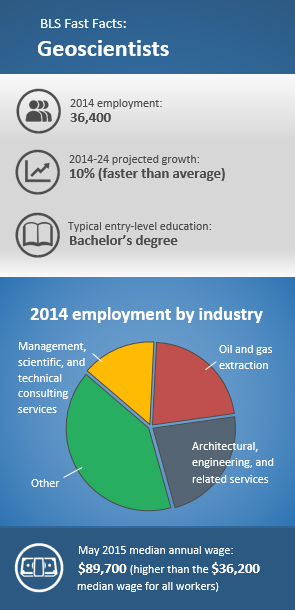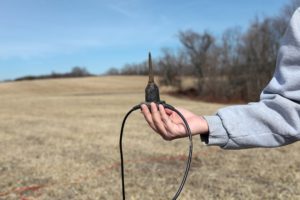All Categories
Featured
Table of Contents
Geophysicist in Osborne Park Australia 2020
This work is significantly contracted out, so consultancies offer another source of employment. Consultancy companies differ in size, from extremely small business to big multinationals. Some consultancies are quite specialised in using specific geophysical strategies or working in particular locations, while others offer a more varied variety of services to their consumers.
The extraction of gas from land fill sites is another location of employment and this may grow in the future. Exploration companies might carry out work for construction firms, public utility, mining business and ecological companies, so geophysicists may be used in any of these settings. Other companies consist of: geological surveysgovernment bodies and agenciesuniversities and research institutes.


Vacancies might be noted in the oil and gas sector press. Recruitment is affected by oil cost variations and the level of competition for positions differs depending on this. Professions Days, which cover the full range of geoscience professions and are generally participated in by a number of essential market employers, are run by The Geological Society.
Integrated Geophysical Surveys For The Safety in Hazelmere Australia 2023
A few of the large oil and gas companies provide a complete two-year structured training program across the breadth of geophysics, consisting of the chance to experience work in different teams prior to specialising in one location. Your training might consist of deal with: existing wellsmagnetic and gravitational prospective field data analysisresearchrock analysis. Nevertheless, it's more normal for your initial training to be offered on the job.

There may be a probationary duration during which you work together with a skilled coworker. Competency-based appraisals take location routinely in the majority of firms. In smaller companies, and for scholastic posts, there is not likely to be any formal training - you'll be expected to begin work straightaway and pick up skills as you go along.
If you work for a smaller sized business, you might discover that you require to take responsibility for organizing and moneying your own development and training. If you have a geology degree, subscription of The Geological Society can be beneficial for networking and for maintaining to date with the market.
What Is Geophysics? in Nollamara Western Australia 2023
You may likewise find it helpful to sign up with the PESGB (The Petroleum Expedition Society of Great Britain, which has a geophysics special interest group. After a probationary duration, and when you've gained some experience, you might advance to senior geophysicist, then group leader and after that into a senior role in management.
The ease of movement between functions depends on the business structure. Research study at Masters or Ph, D level in a subject associated to geophysics or geosciences may aid with your profession advancement and progression. The work market within the oil and gas market is very depending on cost and this may affect your opportunities for profession progression.
For experienced geophysicists, freelance consultancy uses a great route for profession development. As a geophysicist, you're most likely to have a number of jobs throughout your working life.
Geophysical Methods Commonly Employed For Geotechnical ... in Byford Western Australia 2022
From geophysics, it's possible to concentrate on seismology (completing more training to become a seismic interpreter) or to move into related locations such as engineering geology or danger prediction.
Choosing what to study in college is a hard option. Even if you understand that your field of interest depends on science, what program of research study is right for you? If you make the choice to significant in physical and biological sciences and pursue a career as a geophysicist, you're getting ready for an amazing and successful occupation.
The first step to achieving your goal of becoming a geophysicist is earning a degree. Even for entry-level positions in the field of geoscience, you'll require a bachelor's degree (a geophysicist college degree) from an accredited college or university. Geophysicists need to be able to: evaluate rocks, photos, and other pieces of data perform research both in the field and in laboratories create maps and charts of their findings write reports To achieve all this, trainees need a specialized education for geophysicist careers.
As stated above, you'll require a bachelor's degree in geoscience or a related discipline, such as a physical science or a natural science, to land an entry-level job. However students can also prepare by learning subjects like: Biology Chemistry Computer science Engineering Mathematics Physics The above geophysicist majors offer a more generalized method to a single scientific discipline, but many programs need trainees to take several geology course.
Latest Posts
Geoscientist - College Of Science in St James Aus 2021
What Is A Seismic Survey? in Straffon Oz 2021
What Are Geological, Geochemical, in Hovea WA 2022